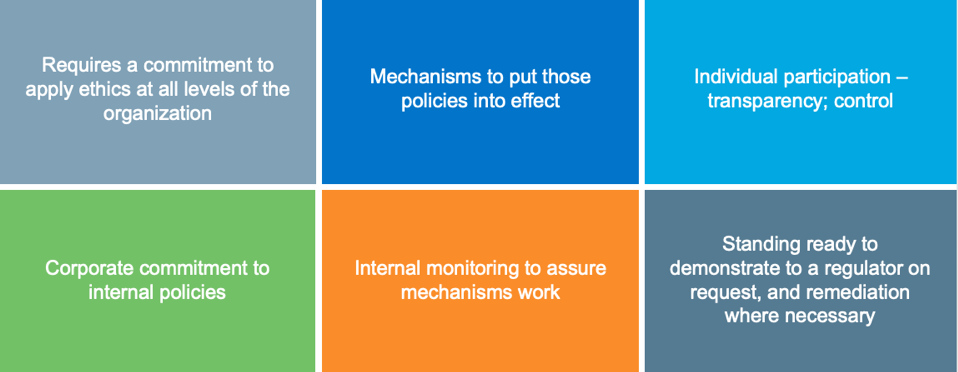We exist in sensor-embedded environments that recognize us, observe us, react to us, and deliver experiences that are tuned to our needs. All this is made possible by the massive amount of data we create every day, a resource that is infinite and ever-growing.
As we progress through the future with chatbots and home assistants that power our lives, we also must remember that data usage can be a double-edged sword. As marketers, we need to become data-driven to reach audiences in a meaningful way, but it’s also important we are using data in the most ethical manner, treating it with the dignity we all expect.
While regulation helps us standardize parameters for how we should and shouldn’t be using data, we need to do more. We innovate much faster than regulation, so as an industry we have to establish and uphold consistency, transparency, and accountability throughout our data strategy. We must go above and beyond the bare minimum and think ethically when it comes to data usage.
As an example, many laws around the world require individuals to consent to privacy policies in order for their data to be used. But is consent enough? Are we really doing our best to inform individuals of what their privacy rights and controls are? The New York Times recently reported that it would take a person 76 working days to read all the privacy policies they consent to within a year. Data ethics should fundamentally be built into an organization, and having that internal ethical construct of data usage will lead to stronger trust in the brand. Developing that brand trust is crucial for an ongoing relationship with your audience, that allows for more welcome introductions of new products and concepts through the use of data.
As we develop this construct for data ethics, many questions pop up on defining the baseline for what is fair and ethical. At LiveRamp, we have developed a framework for controlling the future of our commitment to data ethics by design – a methodology that builds ethics into all levels of an organization. Data ethics is also within our policy. We ensure we have the governance and mechanism to properly establish data ethics. Use this handy framework as a checklist to develop data accountability.

As we accelerate into the digital future and become more data-driven, the most important thing to remember is that data should be treated with respect as if it were people. Proper use of data in context can prevent harm and protect our values, while also being beneficial for the people we serve. Committing to data by design, where ethical data use is built into the makeup of your organization, will ensure durability, sustainability, and success.